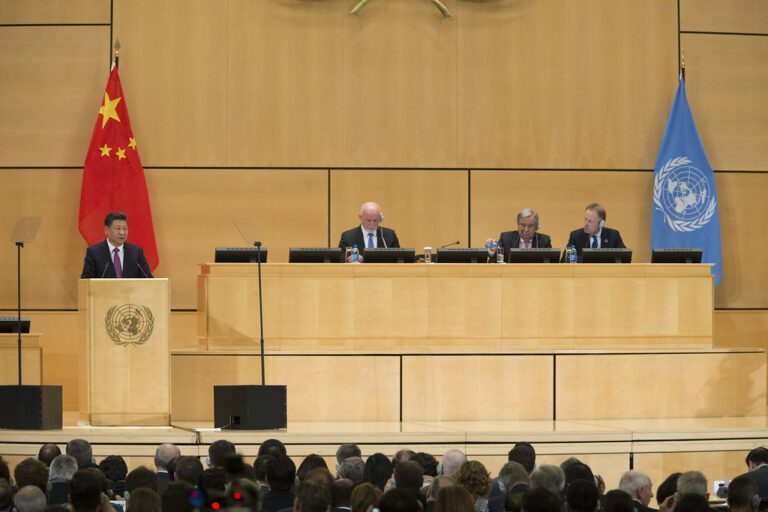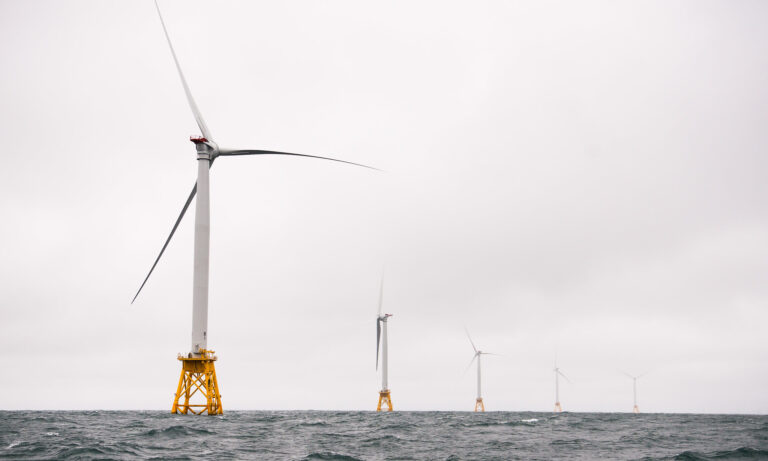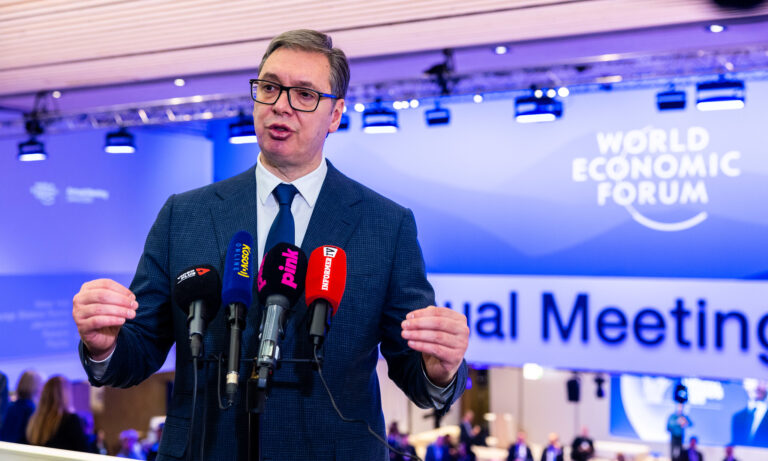Exporting Corruption? The Case of a Chinese Highway Project in North Macedonia

The year 2012 marked the launch of Xi Jinping’s signature campaign against corruption, reportedly discrediting and imprisoning up to 1.5 million officials on all levels. That same year Sinohydro, a Chinese State-owned Enterprise (SOE), was selected to build two highways in North Macedonia, in a deal that went on to become one of the biggest corruption affairs in Macedonian history, bringing down the Prime Minister Nikola Gruevski and his Government. The total length of the two highways amounts to 104km (Miladinovci-Shtip 47km and Kichevo-Ohrid 57km), while the initial contract covered by a loan from the Chinese Export Import Bank was to be EUR 638 million. By the initial deadline for the completion of the project in 2018, only the former highway had been completed and half of the works on the latter. Thus, three appendices to the initial contract were signed which extend the deadline to 2021 and increase the total value of the contract by EUR 180 million. How did North Macedonia get to build such an expensive highway?
Bending the Law
The Kichevo-Ohrid highway (part of the European Corridor 8) which connects the capital Skopje to the center of the country’s tourism industry, Ohrid, has been a strategic priority for the Macedonian Government for years. According to the parameters applied by most Western financial institutions, given the frequency of vehicles and the mountainous terrain, building a highway was not a financially viable alternative. Therefore, it was very difficult for the Government to secure funding, and when the Chinese offer presented itself, it looked like a dream came true.
The loan from the Chinese Exim Bank brought along the Chinese ‘modus operandi’. The Government was supposed to select a Chinese contractor from a list of Chinese SOEs and decided for that purpose to set aside the national legislation on public procurements, largely harmonized with the EU acquis. Instead, an unofficial high-level team led by the Prime Minister engaged in tête-a-tête negotiations to obtain offers by the Chinese companies. Then, a special law was passed by the Parliament to legitimize the selected offer among the two that were received – Sinohydro over CWE, despite the fact that the company had dubious reputation for alleged fraudulent activities and was on two occasions debarred – by the World Bank and the African Development Bank (AfDB).
A major wiretapping scandal uncovered by the opposition in 2015 brought to light allegations that the Prime Minister and his associates intentionally disregarded the CWE offer and chose Sinohydro, despite the fact that the latter had proposed much higher prices, for some items even 300% higher than the standard market value. This resulted in invoices from Sinohydro to the Macedonian PESR being multiple times higher than the invoices from the Macedonian subcontractors to Sinohydro for the actual works that the subcontractors had performed. Following an investigation by the newly formed Special Prosecutor’s Office (SPO) led by Katica Janeva, the former Prime Minister, his Deputy in charge for economic affairs Vladimir Peshevski, the Transport Minister Mile Janakieski and the Director of the Macedonian Public Enterprise for State Roads (PESR) Ljupcho Georgievski were charged for abuse of power leading to personal benefit of over EUR 155 million funds from the national budget.
Furthermore, the entire highway construction process showcased a number of flaws imputable to the poor quality of the planning and project documentation. Namely, due to a lack of geological examinations, the soil where the largest tunnel was supposed to be built turned out to be category six (soft soils subject to erosion) instead of category two (rocks), as initially assumed. In addition, no intersections were planned, making it impossible to leave the highway or get on it from the villages throughout the entire length of 57km. In order to deal with these issues, the newly formed Government negotiated with Sinohydro amendments which, according to sources in the Transport Ministry, are expected to increase the total value of the project by EUR 180 million, backed up by a new loan from the Chinese Exim Bank.
When asked why they decided to continue the cooperation with Exim Bank and Sinohydro after the initial poor performance, a high-level official in the Transport Ministry interviewed by the author explains that their options were very limited – severe the contract, pay penalties and struggle to find another source of funding for the much expected and long-due highway, or choose the lesser of two evils – extend the deadline and pay the extra costs under the principle of no penalties, no claims. One difference seems to be worth mentioning though – new prices for the works had been negotiated based on the market, much lower than the initial ones.
Lose-lose Cooperation
While the current Transport Minister insists that someone needs to be held responsible for this outcome, that scenario seems to be less probable by the day. The former Prime Minister who was the main accused party in the process led by the SPO has fled to Hungary where he sought and was granted asylum on the grounds of facing political persecution at home. Furthermore, the Special Prosecutor Janeva has been accused within a corruption scandal herself for extorting exuberant amounts from some of the defendants in SPO’s cases in exchange for a more lenient approach – no custody, return of their passports, milder sentences etc. Since the SPO was a political agreement on the fringes of the Constitution and until present day there is no consensus to extend its mandate and appoint another Special Prosecutor, the fate of all the ongoing court proceedings, including the one pertaining to the so-called ‘Chinese highways’ remains uncertain.
The heroine of the fight against corruption becoming corrupt herself feeds into the paradigm that corruption in North Macedonia is not a Chinese export, but rather ‘home grown’. The prevalence of corruption in the entire region makes big infrastructure deals particularly susceptible to shady deals resulting in waste of public funds, poor projects and bad image. Sinohydro did not invent or impose corruptive practices, but adapted to the ‘requirements’ and took advantage of the situation. However, such cases, when recurrent and not dealt by the institutions in a proper way, undermine the prospects for development since, for a country aspiring to join the EU, economic and political development should go hand in hand. Thus, any Chinese ambition to support the infrastructural or economic development of the region should take into account the necessity to respect the standards of good governance. To the contrary, a blend of the Chinese procedures teamed with local corruptive practices is the perfect recipe for disaster which in the end leaves nobody better-off but a handful of profit-seekers. Using the Chinese terminology, the most adequate term would be a no-win, or lose-lose situation.
In that context, paradoxically and despite the scandal, Sinohydro has recently won two public contracts to build local roads for prices per item up to four times cheaper than the Kichevo-Ohrid highway. But the tarnished reputation of one of the biggest China-funded infrastructure projects in the Balkans has negative spillover on the overall Chinese engagement in Central and Eastern Europe and along the Belt and Road as well as on the promotion of the Chinese model as an alternative. It supports the claim that Chinese projects undermine EU standards, making public authorities wary in their choice of partners for strategic projects. For instance, according to a senior official of the current Government in North Macedonia, they are very reluctant to consider implementing another strategic infrastructure project with Chinese funds, especially according to the Chinese way. This is also supported by the fact that no proposals have been raised by North Macedonia at the last three 17+1 summits and the Government tacitly withdrew from the project for the modernization of the Corridor 10 railway with Chinese funds, while at the same time, a number of new sizeable infrastructure deals have been announced to be funded by the European banks, such as the railway along Corridor 8 to Bulgaria.
Hence, why the need to improvise with opaque and questionable procedures? It is true that EU requirements in terms of public procurements imply long, strict and cumbersome procedures. They are not fully graft-proof either. But, at present they are the best safeguard against fraudulent practices and failed projects which do not only harm the credibility of politicians, but have more far-reaching consequences on the overall society, perpetuating the vicious circles of corruption, inefficiency and misuse of power.
Written by
Ana Krstinovska
Dr. Ana Krstinovska is a Research Fellow at CHOICE, President of the North Macedonia-based think tank and consultancy ESTIMA and Research Fellow at the Hellenic Foundation for European and Foreign Policy ELIAMEP.


